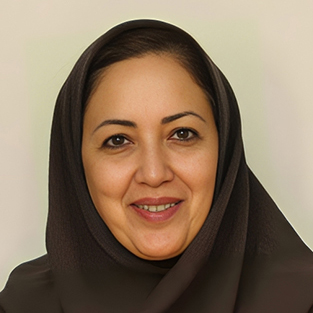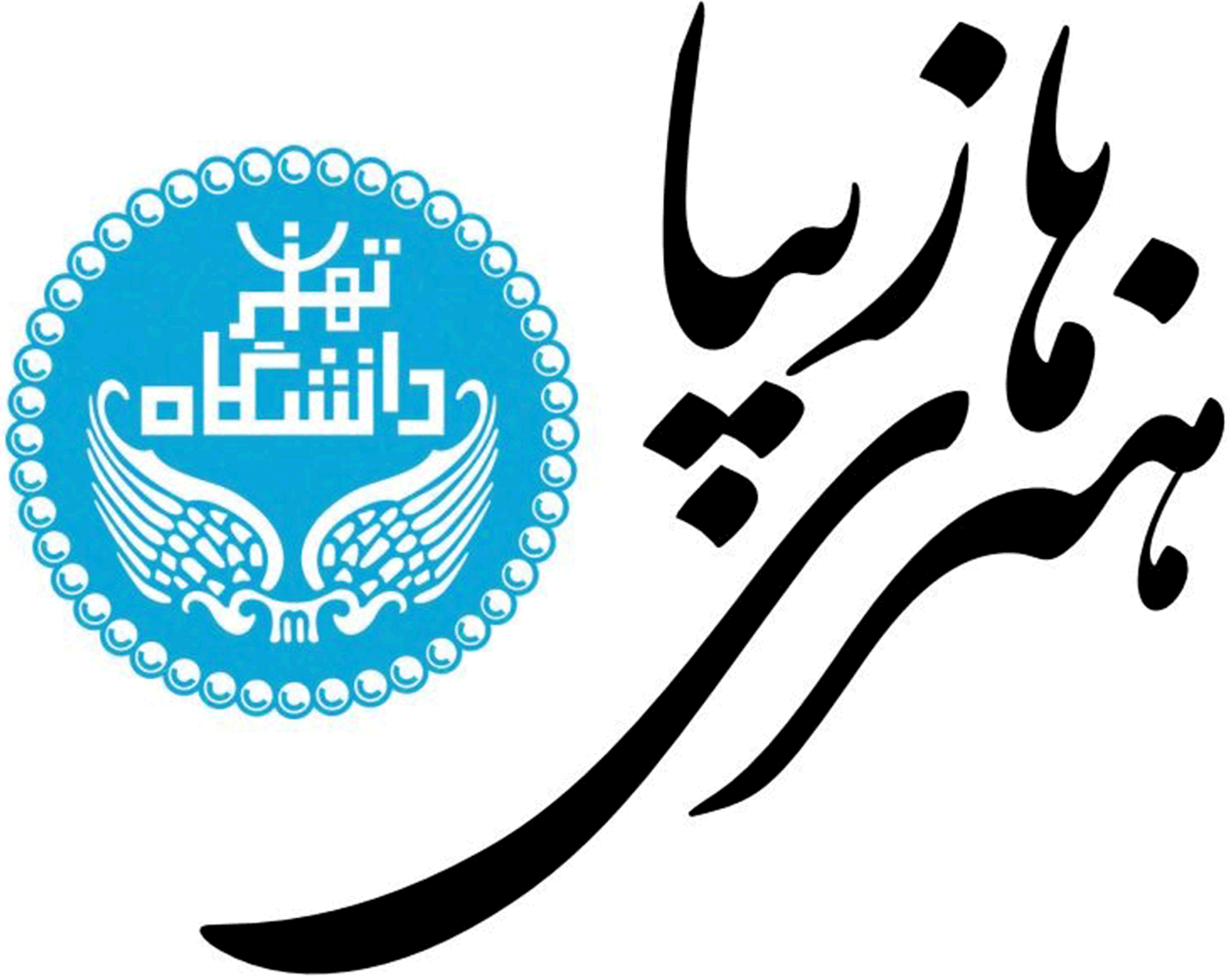Technology - دانشکده معماری arch




Head of Department
Department Members

| Professor | Academic Rank | Subject Area |
|---|---|---|
| Mahmoud Golabchi | Professor | Architectural Technology |
| Katayoun Taghizadeh | Associate Professor | Architectural Technology |
| Mojtaba Sabetfard | Assistant Professor | Architectural Technology |
| Alireza Soltanzadeh | Assistant Professor | Architectural Technology |
| Shahin Heidari | Professor | Energy and Architecture |
| Zahra Ghiabaklou | Associate Professor | Energy and Architecture |
| Zahra Zamani | Assistant Professor | Energy and Architecture |
| Mahdieh Abravesh | Assistant Professor | Energy and Architecture |
| Majid Parchami Jalal | Associate Professor | Project and Construction Management |
| Seyed Hossein Hosseini Nourzad | Assistant Professor | Project and Construction Management |
| Hossein Toosi | Assistant Professor | Project and Construction Management |
| Saied Yousefi | Assistant Professor | Project and Construction Management |
Objectives
- The goal of this program is to train specialists who, while familiar with the principles and basics of architectural design, are well-informed about the technical aspects of buildings, construction sciences, and today’s technologies. They should be capable of playing the role of designer, coordinator, and facilitator of activities in construction plans and projects, possessing the necessary knowledge and awareness in architectural issues and technical principles of buildings.
Admission Conditions and Regulations
- The conditions for student admission to this program comply with the regulations of the Ministry of Science, Research, and Technology.
Career Fields
- Graduates of this program, based on their educational background in their previous courses and this program, will be able to work in the following areas:
- Functioning as consultants in building design from the initial stages to execution and designing the components and elements of buildings.
- Collaborating in architectural and structural design of large construction projects that have specific characteristics in terms of design.
- Planning, managing, and coordinating for the execution of construction projects.
- The total number of credits for this program is 28, which includes 12 credits of remedial courses, 16 credits of specialized courses, 8 credits of elective courses, and 4 credits for the thesis.
Objectives
- The objective of the Architecture and Energy program is to acquire skills in utilizing climatic, local factors, and renewable energies in the design of sustainable architecture, while conserving energy without compromising religious and cultural issues and instead enhancing them. This program aims to integrate energy efficiency into architectural design principles based on religious, cultural, and social factors.
Admission Conditions and Regulations
- The conditions for student admission to this program comply with the regulations of the Ministry of Science, Research, and Technology.
Career Fields
- Graduates of this program, with their skills and knowledge, can work as designers, energy consultants, energy specialists, researchers, and in other related fields. They can play a significant role in saving energy resources and reducing environmental pollution.
- The total number of credits for this program is 28, which includes 8 credits of remedial courses, 11 credits of specialized courses, 12 credits of elective courses, and 5 credits for the thesis.
Objectives
- The goal of this program is to empower specialists to manage construction projects and optimize project management in order to achieve their objectives, enhance productivity and quality levels of projects, complete them on time and within budget, and implement scientifically according to international and national standards. Additionally, a significant aim of this program is to address management challenges at all levels of projects, including financial issues, scheduling, resource allocation and leveling, considering risks, and steering projects towards meeting the satisfaction of all stakeholders. Project and construction management can be applied in all projects in public sectors, public institutions, and the private sector.
Admission Conditions and Regulations
- The conditions for student admission to this program comply with the regulations of the Ministry of Science, Research, and Technology.
Career Fields
- Graduates of this program do not only work in the construction industry but are also employed in industries such as oil and petrochemicals, metal industries, service industries, and information technology. This flexibility indicates the broad significance of project management across various industrial and economic fields.
- The total number of credits for this program is 28, which includes 12 credits of core (mandatory) courses, 12 credits of elective courses, and 4 credits for the thesis. Students in the online program can replace 4 credits of elective courses with the thesis in coordination with the educational group.
Objectives
- The PhD program in Architectural Technology is a coordinated set of scientific, educational, and research activities in the field of architectural technology. It relies on concepts, perspectives, methods, whether theoretical, empirical, or a combination of both, and education serves to address the informational shortcomings of candidates and facilitate the attainment of research objectives. The aims of this program include achieving one or more of the following:
- Mastery of important scientific works in a specific field and specialization in architectural technology.
- Familiarity with advanced research methods and striving for innovation in the field of architectural technology.
- Access to the latest scientific, research, and technological foundations in architectural technology.
- Innovation in scientific and research aspects of architectural technology and contributing to the advancement and expansion of knowledge boundaries.
- Mastery of one or more areas, such as education and research, planning, executing, guiding, supervising, and evaluating, analyzing and solving scientific problems, and addressing scientific challenges in a specialized field of architectural technology to fulfill duties in the research system and higher education or managerial and strategic roles in governmental organizations and national planning institutions.
- Disseminating and producing architectural technology knowledge that aligns with the cultural characteristics and specific conditions of the country.
- Familiarity with advanced research methods and striving for innovation in the field of architectural technology.
- Access to the latest scientific, research, and technological foundations in architectural technology.
- Innovation in scientific and research aspects of architectural technology and contributing to the advancement and expansion of knowledge boundaries.
- Mastery of one or more areas, such as education and research, planning, executing, guiding, supervising, and evaluating, analyzing and solving scientific problems, and addressing scientific challenges in a specialized field of architectural technology to fulfill duties in the research system and higher education or managerial and strategic roles in governmental organizations and national planning institutions.
- Disseminating and producing architectural technology knowledge that aligns with the cultural characteristics and specific conditions of the country.
Admission Conditions and Regulations
- The conditions for student admission to this program comply with the regulations of the Ministry of Science, Research, and Technology.
Career Fields
- Graduates of this program, based on their educational background from their previous courses and this program, will be able to work in the following areas:
- Serving as faculty members in universities and advancing architectural technology through education.
- Collaborating in the architectural and structural design of large construction projects with specific design characteristics.
- Planning, managing, and coordinating for the execution of construction projects.
- Collaborating and partnering with other professionals and stakeholders in design.
- Collaborating in the architectural and structural design of large construction projects with specific design characteristics.
- Planning, managing, and coordinating for the execution of construction projects.
- Collaborating and partnering with other professionals and stakeholders in design.
- The total number of credits for this program is 36, which includes 6 credits of remedial courses, 9 credits of specialized courses, 9 credits of elective courses, and 18 credits for the thesis.
Objectives
- The PhD program in Project and Construction Management is a coordinated set of scientific, educational, and research activities focusing on project and construction management. It relies on concepts, perspectives, methods—whether theoretical, empirical, or a combination of both—and education serves to address candidates' informational shortcomings and facilitate the attainment of research objectives. The aims of this program include achieving one or more of the following:
- Familiarity with advanced research methods and striving for innovation in this area.
- Access to the latest scientific, research, and technological foundations in project and construction management.
- Innovation in scientific and research fields, contributing to the advancement and expansion of knowledge boundaries.
- Mastery of one or more domains, such as education and research, planning, executing, guiding, supervising, evaluating, analyzing and solving scientific problems, and addressing scientific challenges in a specialized area of project and construction management, to fulfill duties in the research system and higher education or managerial and strategic roles in governmental organizations and national planning institutions.
- Disseminating and producing knowledge in project and construction management that aligns with the cultural characteristics and specific conditions of the country.
Admission Conditions and Regulations
- The conditions for student admission to this program comply with the regulations of the Ministry of Science, Research, and Technology.
Career Fields
- Graduates of this program, based on their previous educational background and this program, will be able to work in the following areas:
- Conducting advanced research in management and construction engineering in the country.
- Managing architectural and civil projects.
- Serving as faculty members in universities and developing project management through education.
- Planning, managing, and coordinating for the execution of construction projects.
- Collaborating and partnering with other professionals and stakeholders in design.
- The total number of credits for this program is 36, which includes 10 credits of remedial courses, 12 credits of specialized courses, 6 credits of elective courses, and 18 credits for the thesis.
